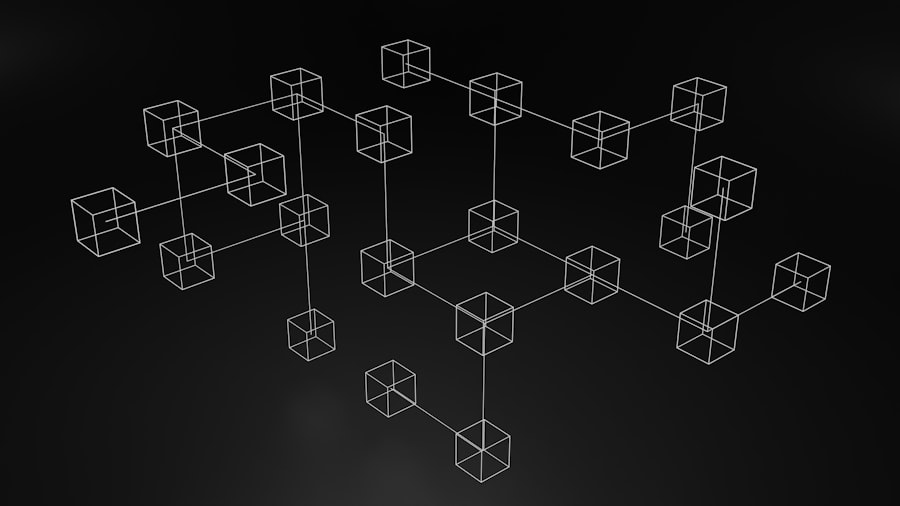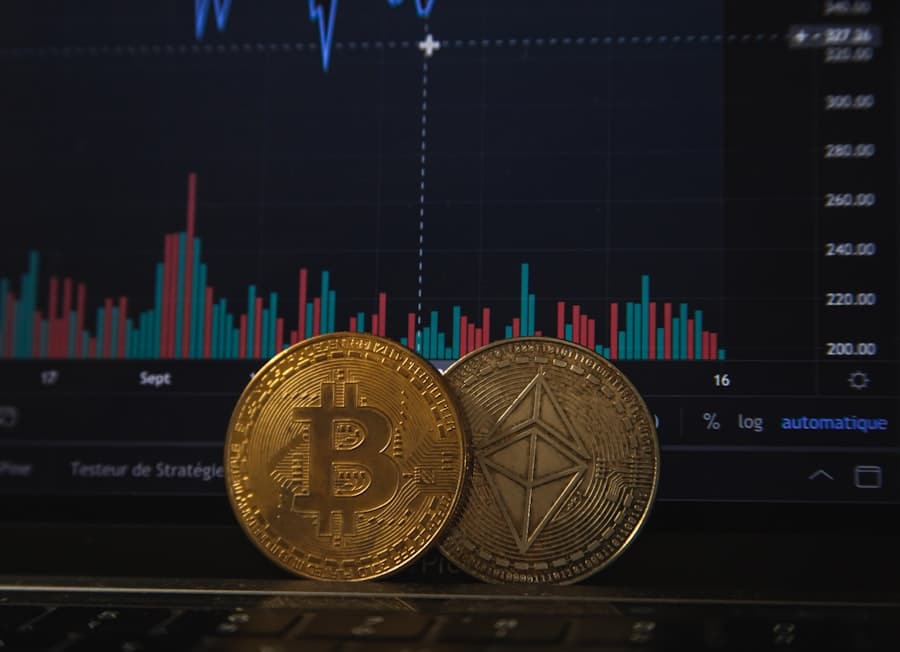Blockchain technology has emerged as a revolutionary force in various sectors, fundamentally altering how data is stored, shared, and verified. At its core, blockchain is a decentralized digital ledger that records transactions across multiple computers in such a way that the registered transactions cannot be altered retroactively. This technology was initially developed as the backbone of cryptocurrencies like Bitcoin, but its potential extends far beyond financial applications.
The decentralized nature of blockchain ensures that no single entity has control over the entire network, which enhances transparency and security. Each block in the chain contains a list of transactions, and once a block is filled, it is cryptographically linked to the previous block, forming an immutable chain of data. The implications of blockchain technology are profound, particularly in sectors that require trust and verification.
In education, for instance, the ability to securely store and verify academic credentials can address long-standing issues related to fraud and misrepresentation. As educational institutions increasingly adopt digital solutions, the integration of blockchain technology offers a promising avenue for enhancing the integrity of academic records. By leveraging this innovative technology, stakeholders can ensure that credentials are not only secure but also easily verifiable by employers and other institutions.
Key Takeaways
- Blockchain technology is a decentralized and secure way of storing and verifying data, making it an ideal solution for academic credential verification.
- Academic credential fraud is a significant problem, with fake degrees and certificates being used to deceive employers and educational institutions.
- Blockchain ensures security and authenticity by creating a tamper-proof and transparent record of academic credentials, making it nearly impossible to falsify or manipulate.
- Smart contracts play a crucial role in academic credential verification by automating the process and ensuring that only valid credentials are accepted.
- Using blockchain for academic credentials offers advantages such as increased trust, reduced fraud, and streamlined verification processes.
The Problem of Academic Credential Fraud
Academic credential fraud has become a pervasive issue in today’s competitive job market. With the increasing emphasis on educational qualifications as a prerequisite for employment, individuals may resort to falsifying their degrees or transcripts to gain an unfair advantage. According to a report by the National Student Clearinghouse Research Center, nearly 1 in 10 job applicants misrepresent their educational background.
This alarming statistic highlights the urgent need for effective solutions to combat credential fraud. The consequences of academic fraud extend beyond individual cases; they can undermine the credibility of educational institutions and devalue legitimate degrees. Employers often face challenges in verifying the authenticity of candidates’ credentials, leading to potential hiring mistakes and financial losses.
Furthermore, institutions that fail to address these issues may find their reputations tarnished, making it difficult to attract quality students and faculty. As the demand for transparency and trust in educational qualifications grows, it becomes increasingly clear that traditional methods of verification are inadequate in addressing these challenges.
How Blockchain Ensures Security and Authenticity

Blockchain technology offers a robust solution to the problem of academic credential fraud by providing a secure and transparent method for storing and verifying educational records. Each credential issued on a blockchain is time-stamped and linked to a unique cryptographic hash, ensuring that any attempt to alter or forge the record would be immediately detectable. This immutability is one of the key features that sets blockchain apart from traditional databases, where records can be modified or deleted without a trace.
Instead, multiple nodes within the network maintain copies of the ledger, making it nearly impossible for any one party to manipulate the information without consensus from others. This distributed approach not only enhances security but also fosters trust among stakeholders.
Educational institutions can issue verified credentials directly onto the blockchain, allowing employers and other institutions to access this information in real-time without relying on intermediaries. The result is a more efficient verification process that significantly reduces the risk of fraud.
The Role of Smart Contracts in Academic Credential Verification
Smart contracts are self-executing contracts with the terms of the agreement directly written into code. They operate on blockchain networks and automatically enforce and execute actions when predetermined conditions are met. In the context of academic credential verification, smart contracts can streamline the process by automating various tasks associated with issuing and verifying credentials.
For instance, when an educational institution issues a degree or certificate, a smart contract can automatically record this transaction on the blockchain, including relevant details such as the student’s name, degree type, and date of issuance. When an employer or another institution requests verification of this credential, the smart contract can facilitate access to the information without requiring manual intervention. This not only speeds up the verification process but also minimizes human error and reduces administrative burdens on educational institutions.
Additionally, smart contracts can incorporate various conditions for credential verification. For example, they can be programmed to allow access only to authorized parties or to require multiple confirmations before releasing sensitive information. This level of customization ensures that academic records are not only secure but also accessible in a controlled manner, further enhancing trust in the system.
Advantages of Using Blockchain for Academic Credentials
The adoption of blockchain technology for academic credentials presents numerous advantages that can transform how educational qualifications are managed and verified. One of the most significant benefits is enhanced security. By utilizing cryptographic techniques and decentralized storage, blockchain minimizes the risk of data breaches and unauthorized access.
Educational institutions can confidently issue credentials knowing that they are protected against tampering. Another advantage is increased efficiency in the verification process. Traditional methods often involve lengthy procedures that require contacting multiple institutions and waiting for responses.
This not only saves time but also reduces costs associated with manual verification processes. Furthermore, blockchain technology promotes greater transparency in academic records.
Stakeholders can track the entire history of a credential from issuance to verification, providing an auditable trail that enhances accountability. This transparency can also foster trust among employers and educational institutions, as they can be assured of the authenticity of the credentials being presented.
Case Studies of Successful Implementation of Blockchain in Academic Credential Verification

Several educational institutions around the world have begun to explore and implement blockchain technology for academic credential verification with promising results. One notable example is MIT Media Lab’s Digital Diploma initiative, which allows graduates to receive digital diplomas stored on a blockchain. This initiative not only provides graduates with a secure way to share their credentials but also enables employers to verify these diplomas quickly and efficiently.
Another case study is found in Australia, where Deakin University has partnered with various organizations to develop a blockchain-based system for issuing digital credentials. This system allows students to receive verifiable digital badges for their achievements, which can be shared with potential employers or other educational institutions. The initiative has garnered positive feedback from both students and employers, highlighting its effectiveness in enhancing trust in academic qualifications.
In addition to these examples, several startups are emerging in this space, offering platforms specifically designed for academic credential verification using blockchain technology. Companies like Blockcerts provide tools for institutions to issue and verify digital certificates on a blockchain network, further demonstrating the growing interest and potential for this technology in education.
Challenges and Limitations of Blockchain in Academic Credential Verification
Despite its many advantages, implementing blockchain technology for academic credential verification is not without challenges. One significant hurdle is the need for widespread adoption among educational institutions. For blockchain systems to be effective, all stakeholders must agree on standards and protocols for issuing and verifying credentials.
This requires collaboration among various institutions, which can be difficult to achieve given differing priorities and resources. Another challenge lies in regulatory compliance. Educational institutions must navigate complex legal frameworks regarding data privacy and security when implementing blockchain solutions.
For instance, regulations such as GDPR in Europe impose strict requirements on how personal data is handled, which could complicate the use of decentralized systems where data is stored across multiple jurisdictions. Additionally, there are concerns about technological barriers that may hinder adoption. Many educational institutions may lack the technical expertise or infrastructure necessary to implement blockchain solutions effectively.
This could lead to disparities between institutions that adopt blockchain technology and those that do not, potentially exacerbating existing inequalities in access to education.
The Future of Blockchain in Academic Credential Verification
Looking ahead, the future of blockchain technology in academic credential verification appears promising but will require concerted efforts from various stakeholders to realize its full potential. As more educational institutions recognize the benefits of using blockchain for secure credentialing, we may see an increase in collaborative initiatives aimed at establishing common standards and practices. Moreover, advancements in technology will likely address some current limitations associated with blockchain implementation.
For instance, improvements in user-friendly interfaces could make it easier for institutions to adopt these systems without requiring extensive technical knowledge. Additionally, as regulatory frameworks evolve to accommodate new technologies, educational institutions may find it easier to navigate compliance issues related to data privacy. The growing demand for transparency and trust in academic qualifications will continue to drive interest in blockchain solutions.
As employers increasingly seek reliable ways to verify candidates’ credentials quickly and efficiently, educational institutions that embrace this technology may gain a competitive edge in attracting students and partnerships. In conclusion, while challenges remain, the integration of blockchain technology into academic credential verification holds significant promise for enhancing security, efficiency, and trust within the education sector. As this technology matures and gains traction among stakeholders, it has the potential to reshape how academic qualifications are issued and verified globally.
In the realm of digital innovation, blockchain technology is revolutionizing the way academic credentials are secured and verified. An article titled “How Blockchain Supports Secure Academic Credentials” delves into the mechanisms by which blockchain ensures the authenticity and integrity of educational records. For those interested in exploring how technology is enhancing other sectors, the article on the best Android health management watches provides insights into how wearable technology is advancing personal health management. Both articles highlight the transformative power of technology in creating more secure and efficient systems across different fields.
FAQs
What is blockchain technology?
Blockchain technology is a decentralized, distributed ledger that records transactions across many computers in such a way that the registered transactions cannot be altered retroactively.
How does blockchain support secure academic credentials?
Blockchain supports secure academic credentials by providing a tamper-proof and transparent system for recording and verifying academic achievements. This can help prevent fraud and misrepresentation of academic qualifications.
What are the benefits of using blockchain for academic credentials?
Using blockchain for academic credentials can provide benefits such as increased security, reduced fraud, improved transparency, and easier verification of qualifications.
How does blockchain ensure the security of academic credentials?
Blockchain ensures the security of academic credentials by using cryptographic techniques to secure the data, decentralizing the storage of information, and providing a transparent and immutable record of academic achievements.
What are some examples of blockchain-based academic credential platforms?
Examples of blockchain-based academic credential platforms include Blockcerts, Learning Machine, and Sony Global Education’s platform for storing and managing educational data.
How can individuals and institutions use blockchain for academic credentials?
Individuals and institutions can use blockchain for academic credentials by issuing and storing digital certificates and diplomas on a blockchain platform, which can then be easily verified by employers, educational institutions, and other relevant parties.

